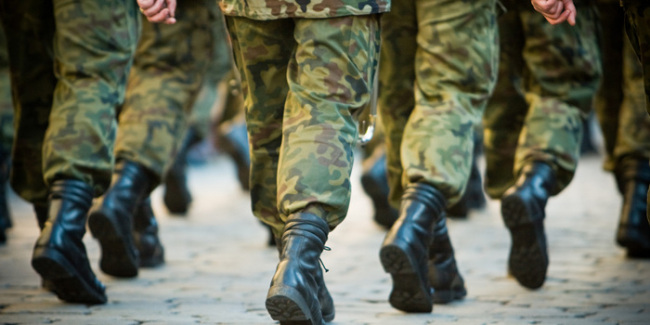Former Brig. Gen. Yoon Han-doo recalls the day when South Korean corvette Cheonan was struck by a North Korean torpedo on March 26, 2014.
The retired general had been serving as the head of the Armed Forces Capital Hospital, which attended to the wounded sailors after the incident that left 46 dead.
“Right then, I thought ‘this is a war, these are casualties of war,’” he said.
Nearly 63 years have passed since the 1950-53 Korean War ended in an armistice, but the occasional skirmish with the communist North and inter-Korean tension leave mental marks on South Korean soldiers.

“The trauma generally comes from the fact that the conscripted soldiers, who are ordinary young men, don’t anticipate that they will sustain an injury that will cripple them for life,” Yoon said. “They just respond to the country’s calling, and they are unable to run for the rest of their lives. How will you compensate for that?”
Post-traumatic stress disorder is not caused only by hailstorms of bullets and explosions.
Lee Sang-kyu, a psychiatrist from Hallym University Medical Center, said that PTSD for conscripted men can come from the simple fact that they are serving against their will.
“The stress from adjusting to a foreign environment, relationships with other servicemen, possible abuse and lack of proper treatment for trauma may deteriorate the issue or cause other problems like depression, suicide, or even acts of violence,” he said.
Such stress revealed itself in a most tragic fashion in June 2014. A 23-year-old conscripted sergeant opened fire on his comrades, left five dead and seven injured.
The Supreme Court in February upheld a lower court’s decision to hand him a death sentence, calling it a “carefully thought and cold-blooded” crime.
But his lawyer, Kim Jung-min, opposed the death sentence on the grounds that structural problems of the military had pushed him over the ledge.
“He had a peculiar side to him. He was bullied since his youth, through which he developed a habit of evading problems rather than facing them,” he said. “Lim had decided to just endure it until he finished his service. But that day (of the shooting spree), it was more than he could handle, which others failed to notice.”
Kim, formerly a law officer for the military, pointed out that lower-ranked soldiers often get their basic rights ignored by their superiors. He called for swift changes to the military, which involved the overhaul of the soldiers’ treatment.
“Military needs to switch to recruiting their soldiers. It is a delusion to think that (conscripted) soldiers who do not really get paid and are there against their will would have their human rights respected,” he said.
Abolishing mandatary military service is an ongoing debate in South Korea. While some military personnel agree with the notion, the difficulty of sustaining some 700,000 troops purely by recruitment hinders its implementation.
Yoon said that changing to recruitment will help with troop motivation. He pointed out that soldiers who are there through their own will — and are well compensated for their efforts — are far more likely to have a strong sense of duty toward the military.
A recent trend also backs this theory, with the accumulated number of men waiting to be conscripted continuing to surge. Military officials explained the pileup is a result of an increased number of boys born in the ’90s, as well as a rise in number of applicants wishing to enter the military earlier amid a tough job market. They forecast the number of those on the waiting list to reach 210,000 by 2020, prompting the military to toughen the physical examination for conscription.
But as of now, we need to focus on taking care of those who dutifully serve their country, Yoon said.
“As a military doctor, I think the military’s priority should be to return the abled-bodied men as they were. It would be wrong to leave any lasting marks on them,” he said.
By Yoon Min-sik (minsikyoon@heraldcorp.com)



